Weather:
- Ha Noi 24oC
- Da Nang 25oC
- Ho Chi Minh 28oC
By Công Thành
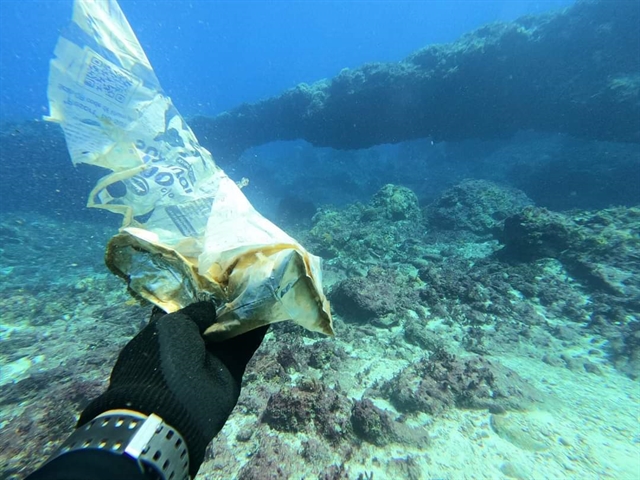
The Chàm Islands, 20km off the coast of Hội An ancient town, have been building the first ‘zero-waste and non-plastic’ site in Việt Nam by boosting recycling waste and saying 'no' to single-use plastic goods.
Two Material Recovery Facility (MRF) stations, built as a pilot project in 2021-23 on two crowded beaches, Bãi Ông and Bãi Hương, have collected 33 tonnes of waste, of which 15 tonnes were recycled into 600kg of compost and 280 litres of bio-dishwasher.
The MRF, managed by the community, helped reduce half of the waste amount at the dump with a sorting ratio of 84.5 per cent, blocking 350kg of plastic waste from leaking into the ocean in a two-year trial.
Lê Thị Thu Thuỷ, managing member at the Bãi Ông MRF, said the introduction of the waste recovery site was an effective solution in hitting zero-waste targets.
“Organic waste accounted for 81 per cent of total daily waste at the MRF, including kitchen and garden rubbish that can be recycled as compost and bio-detergent,” she said.
"Each islander releases about 0.2kg of waste each day, while tourists add another 0.6kg daily, which means the Eo Gió landfill has been overloaded for years."
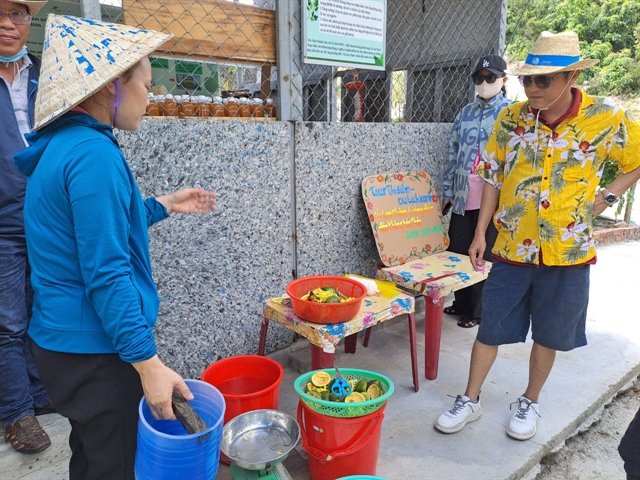
Thuỷ said waste classification would help recover compostable material and reduce the amount of waste going to the landfill to be buried.
“The MRF will help islanders deal with waste, and play as a practical lesson on environment among school students,” Thuỷ said.
Waste free
The islands, including eight islets with a total of 2,400 inhabitants, are the first location in Việt Nam to successfully promote the non-use of plastic bags and the ‘3Rs’ (reduce, reuse and recycle) programmes since it was recognised as a world biosphere reserve site by UNESCO from 2009.
"Continuous programmes have been made in cooperation with the Global Alliance for Incinerator Alternatives (GAIA), WWF-Vietnam, IUCN and the UNESCO to protect the ocean and stop using single-use plastic products," said Huỳnh Thị Thuỳ Hương, a member of the Chàm Islands Marine Protected Area (MPA) managing board.
Non-use plastic bag notices can be seen at the Cửa Đại Port, a major quay for all boats from the mainland to the islands, warning visitors not to throw away any plastic bags.
“The number of families joining waste classification at source has been increasing as islanders are really aware of the importance of ‘clean and green’ ocean protection as a crucial factor for prosperous ecotourism in the past two decades,” Hương said.
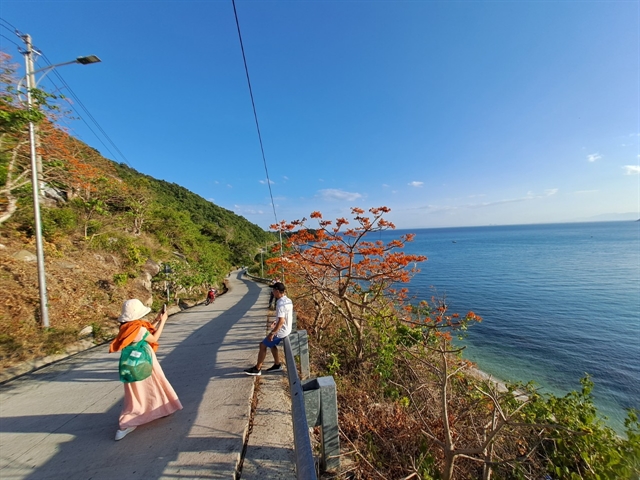
All bags at Tân Hiệp Market – a major wet market for local housewives – are recycled and reusable, often made of banana leaves.
“Women often bring reusable bags to their daily market trip, or they receive free environment-friendly bags from sellers,” said Nguyễn Thị Ca, 73, a housewife.
“Residents turn old papers into bags for snacks at any shops. Tourists can take away seafood, dried herbal tea and souvenirs in old bags from the islands to the mainland. These bags can be reusable, or returned to the shops for future use.”
Ca said people had been choosing less environment-polluting daily activities since 2009, clearing the islands of a plastic-bag invasion.
“We also create various nature-based tourism products to build an eco-brand of the islands among global tourists. Daily used herbal tea and vegetables among islanders are now gifts to visitors that help promote healthy habits and harmony with nature on the Chàm Islands,” Ca said.
She added that herbal tea and vegetables had been used by islanders as a natural antibiotic and a cure for various illnesses of the locals.
Lê Ngọc Thảo, secretary of the Chàm Islands MPA, said about 280 useable herbal species could be found on the islands.
Herbal tea and vegetables are included in ecotourism services, as well as traditional crafts in hosting visitors on the islands.
Lê Thị Kè, 85, a craftswoman, said local handmade products mainly consumed on the islands were now becoming commercial goods.
“We use natural materials in our tourism-driven production, but still ensure strong protection of the environment," Kè said.
“Craft products such as tree bark hammocks, herbal tea and recycled shopping bags help improve our income.
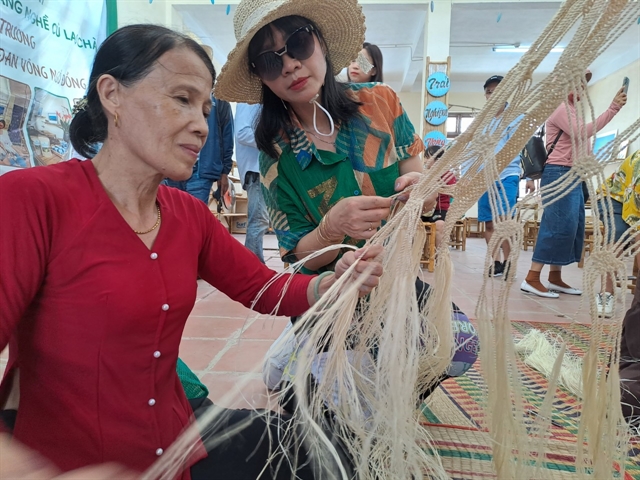
“It’s a circle of life for both humans and nature. We protect nature from waste pollution and exploitation, and nature provides an attractive environment for tourism growth.”
A report from the Chàm Islands’ administration said that more than 80 per cent of the population had switched from fishing to the ecotourism sector, earning a total US$3.6 million per year, including 65 per cent from tourism and service.
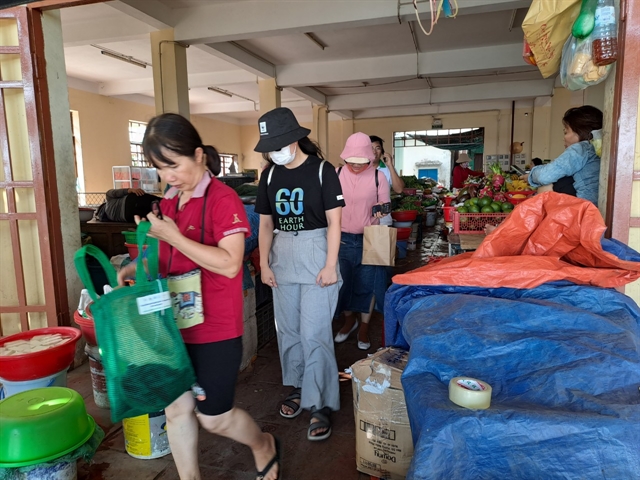
The Chàm Islands have been receiving support and cooperation from the International Union for the Conservation of Nature, WWF, GAIA and USAID’s municipal waste recycling programme in helping the islands become the first successful ‘zero waste’ and ‘non-plastic waste’ location in Việt Nam
Hương believes the MRF stations will help promote waste classification among the community.
“Human action and awareness of waste classification are a responsibility of the community, and they will enable us to become completely ‘zero waste’ islands,” she said. VNS


